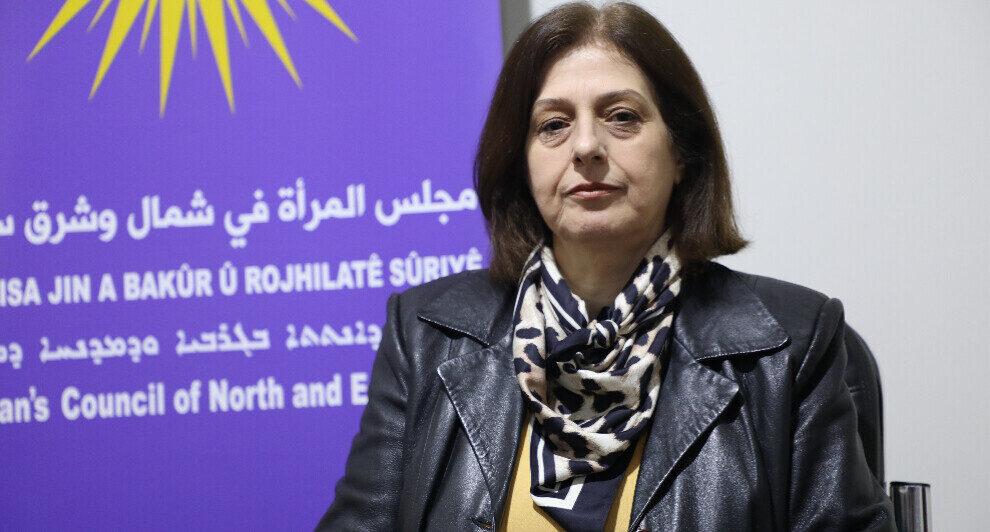Member of the Northern and Eastern Syria Women’s Council, Stêr Bişar Qasim, spoke about the new Social Contract.
A new social contract came into force in Northern and Eastern Syria on Wednesday. This social contract is intended to do justice to the developments of the past eleven years and includes, among other things, the institution of women’s councils.
The General Assembly of the Autonomous Administration of Northern and Eastern Syria ratified on Tuesday the draft of a new social contract, after all 134 articles were approved by the representatives of relevant bodies were discussed individually.
The social contract is based on an ecological–democratic and women’s liberation paradigm, communal economy, self-government, social justice and a democratic confederation of councils. Stêr Bişar Qasim, member of the Women’s Council of Northern and Eastern Syria, was a member of the Preparatory Commission for the Social Contract. She told ANF that the social contract already guarantees the rights of the ethnic and religious identities that live together as brothers and sisters in Northern and Eastern Syria. However, a new agreement became necessary because certain deficiencies existed and newer developments were not taken into account.
The women’s councils are now described in the social contract, and articles have been introduced to make the work of the economic, health, education and other committees more effective. Qasim said: “There was a need to incorporate the experiences of the eleven years of revolution and the associated changes into the social contract.”
“Constitutional guarantee of all differences”
Stêr Bişar Qasim said that in Northern and Eastern Syria there are various ethnic identities such as Kurds, Arabs, Armenians, Assyrians, Circassians, Chechens, as well as religious identities such as Muslims, Christians, Jews and Yazidis. She added that, “therefore, it was necessary to protect the rights of different ethnic and religious identities and build a common life. The social contract approved by the Autonomous Administration is a contract in accordance with the principle of the democratic nation. It was implemented with the consent of all segments of society and with the participation of representatives of all institutions, organizations, religions, denominations and peoples. It was unacceptable for only one national identity to prevail and other nations to remain in a minority position. The social contract secured the rights of the various ethnic, religious and denominational identities.”
“Renewal from healthcare to the economy”
Stêr Bişar Qasim underlined that nothing has changed in the principles. A new system is envisaged that meets the needs of the region – from the municipality to the council, from economics to finance, from healthcare to education.
Reorganization of the cantons
Qasim spoke about the reform of regional organization in the form of cantons: “The system was changed to seven cantons, namely Jazira, Firat, Raqqa, Tabqa, Deir ez-Zor, Manbij and Afrin–Shehba. All articles of the social contract are important. The topics of education and health were also discussed in detail. In building a more organized life based on direct democracy, no step can be taken without the people. Discussions have been held to improve people’s lives and shape the education and learning system to create an organized and conscious society.”
“The goal is a democratic republic”
Stêr Bişar Qasim said that “as the social contract states, it is about building a democratic Syria. We are creating a model that is far from an autocratic system. The results of the centralist system in Syria are clear to us. The rights of various ethnic, religious and national identities were violated. For this reason, we have identified the Syrian Democratic Republic as our goal both in our discussions and in this social contract. In addition, the treaty can be changed if an agreement is reached on a democratic constitution in Syria. Democracy is a system that focuses attention on community life, based on equality and justice, guided by the decision of the people and placing coexistence at its core.”

